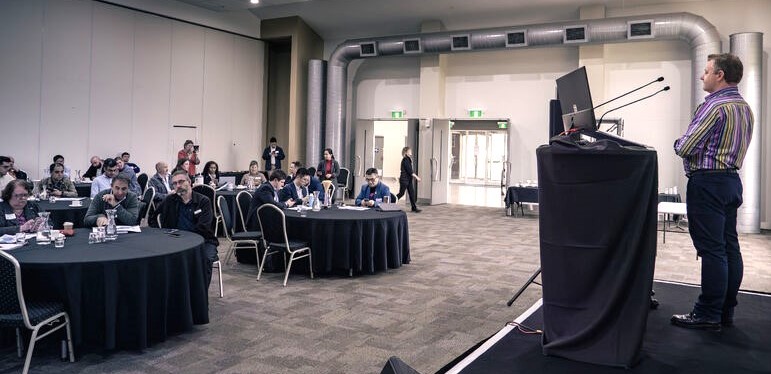30 April 2024

On a windy day in Lardner Park a group of specialists in the energy, agriculture, and forestry industries got together to talk bioenergy in Gippsland.
In a nutshell: bioenergy is the process of producing energy from organic material, also called biomass. This could be animal waste such as effluent (cow poo + water) from the dairy industry, plant waste from agriculture, or forestry waste such as sawdust and offcuts from harvesting timber.
Gippsland has an abundance of biomass. We have waste from our $7 billion per annum regional agricultural product; we have a combined herd size of 330,000 dairy cows; and over 1.5 million tonnes of forestry residue produced each year. Right now, all of this potential energy is going to waste.
At the forum we heard from bioenergy experts from Denmark, which is roughly 15 years ahead of Australia in this space and on track to be producing 100% clean gas by 2030. A key technology in this gas making process is anaerobic digestion.
Imagine a big tank full of cow poo and green waste (if you’re eating right now – sorry!). The waste produces biogas, which can then be burned to generate electricity, or used to create chemicals such as ammonia (used in fertilizer), clean CO2 (for use in soft drinks), or biomethane (an LPG replacement).
This is an exciting prospect for Gippsland! We could support our solar and wind electricity generation by using biogas created from anaerobic digestion to run generators to top up the grid at night when energy production from sun is low, or when conditions are not favourable for wind electricity generation. Plus, we could use/upgrade our existing infrastructure to create a biogas network, sending biogas to Melbourne.
Bioenergy is already in play in Gippsland. Ellinbank Smart Farm is setting up a trial anaerobic digestor and Radial Timbers in Yarram already use pyrolysis, a similar process which turns leftover sawdust into biogas and produces heat for use, in the production of laminated timber.
The forum was host to an eclectic mix of finance experts, scientists, renewable energy specialists, government, and industry both big and small - but one thing everyone shared was the desire to bring bioenergy to Victoria in a meaningful way.
The Gippsland Bioenergy Forum was hosted by the Victorian Bioenergy Network and the Latrobe Valley Authority.
Pictured: LVA Senior Manager Regional Programs (Energy) Ashley Hall speaking at the Gippsland Bioenergy Forum at Lardner Park.
